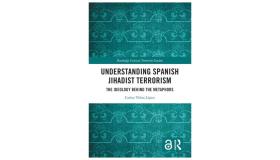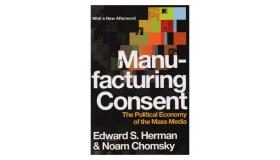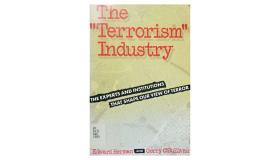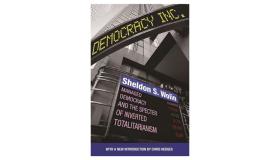
Breadcrumbs navigation
The best books on terrorism and democracy
This article was originally published by Shepherd, a book discovery website where authors and experts share their favourite books. BISA has a partnership with Shepherd to showcase our members' books and this time it's the turn of Carlos Yebra López. Look out for further articles by BISA members in the coming weeks. Try their bookshelf on international relations or politics to browse a wide range of recommended books.
Why am I passionate about this?
I'm a scholar with a deep interest in the critical study of propaganda and its role in shaping public perceptions of terrorism, particularly in Spain. My passion for this topic stems from the recognition that propaganda is pervasive in today’s world and that accusations of terrorism are often deployed strategically to delegitimise a society’s political opponents.
By examining how groups are framed as 'terrorists' and unlearning the biased narratives that surround them, we can begin to understand their true nature beyond superficial prejudice. This perspective drives my commitment to exploring media, political discourse, and historical context critically, making me well-positioned to recommend works that illuminate the complex interplay between propaganda, terrorism, and societal perception.
I wrote...
Understanding Spanish Jihadist Terrorism

What is my book about?
This book offers the first systematic account in English of the Spanish mass press coverage of "jihadist terrorist" attacks in contemporary Spain. Drawing upon a critical analysis of the "Spanish Transition to Democracy" (1975–82) and "War on Terror" narratives, it examines the ideology underlying the metaphors used in the Spanish mainstream press coverage of the terrorist attacks in Madrid (2004) and Barcelona (2017).
The book shows how these metaphors were systematically deployed for propagandistic purposes that sought to "manufacture the consent" of the Spanish population while obstructing public deliberation apropos the attacks, strengthening Spanish 'democracy' by defining it in opposition to "jihadist terrorism."
The books I picked & why
Manufacturing Consent: The Political Economy of the Mass Media

Why I love this book.
This book completely changed how I understand the relationship between media, democracy, and power.
It exposes how supposedly free press can serve elite interests while silencing dissent. I admire its rigor and its relevance—decades later, its "propaganda model" still applies, at least to anything written in the pre-digital era. It gave me the vocabulary to critique mainstream narratives around terrorism.
Routledge Handbook of Critical Terrorism Studies

Why I love this book.
It offers a fresh, bold alternative to mainstream terrorism studies, challenging the dominant state-centric frameworks.
I appreciate how it gives voice to marginalized perspectives, particularly those critical of Western policies. Its interdisciplinary approach helped me link terrorism with issues like identity, language, and empire.
It’s not just a handbook—it’s a manifesto for rethinking security.
The Terrorism Industry

Why I love this book
This is a powerful critique of how "terrorism" is constructed and commodified by Western institutions.
I love how it dissects the ecosystem of think tanks, media, and academics that profit from fear. It taught me to ask who benefits from every counterterrorism narrative.
Reading it felt like peeling back the layers of a carefully orchestrated illusion.
Democracy Incorporated

Why I love this book
Wolin’s concept of 'inverted totalitarianism' helped me understand how democracy can erode from within, without tanks in the streets.
I admire his fearless critique of corporate power and its subtle grip on democratic institutions. The book gave me a framework to interpret post-9/11 political shifts in the U.S. It’s haunting, prescient, and intellectually exhilarating.
Photo by Olena Bohovyk on Unsplash


